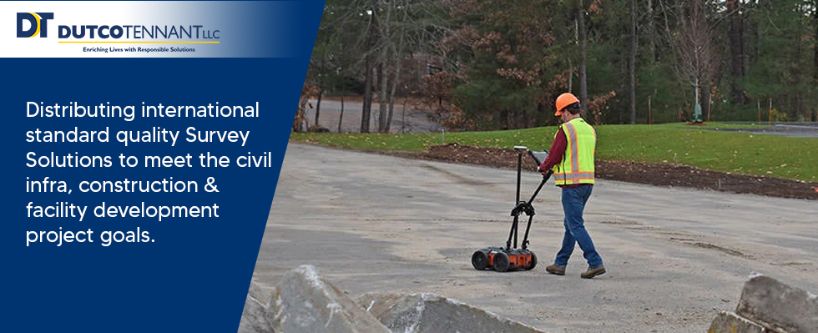
All You Need To Know About GPS Surveying
Global Positioning System, abbreviated and known popularly as GPS was initially developed for military use. However, in recent times, GPS has become a part of our everyday life.
GPS is used in a myriad of applications including mobile phones, in-car navigation, etc. It is also in use for surveying services. There are many pieces of GPS survey equipment that experts utilize in civil infrastructure, construction and facility development projects.
GPS technology was rapidly adopted in the survey field. Since it has the capacity to deliver a position (longitudinal, latitudinal and height) directly, excluding any need to measure intermediate points.
Although conventional surveying methods are still in use, the integration of GPS technology allows experts to reach new levels. If you are interested to know more about the role of GPS in surveying then read this blog till the end.
Why GPS Surveying?
GPS is basically a satellite-based navigation and surveying system. It helps in determining the precise position and time of a point utilizing radio signals from the satellites.
Nowadays there are many GPS survey equipment traders offering the most curated solutions to meet specific project needs. The demand for gps-based survey solutions have gone up due to several benefits that this technology offers.
Conventional surveying techniques use ground-to-ground survey measurements. This can give rise to a range of errors and limitations in survey outcomes.
GPS, on the other hand, utilizes a ground-to-space measuring technique which helps in overcoming these issues due to its capacity of terrestrial surveying methods.
Working Principle of GPS in Surveying
To understand the role of GPS in surveying, you must learn about the working principle of GPS. There are essentially three primary components based on which GPS works. These are -
The Space Segment - The space segment includes satellites that are positioned at an inclination of 55 degrees in almost six circular orbits. This set of satellites is known as a constellation.
Each satellite contains four accurate atomic clocks, out of which one is used at a time.
These satellites are responsible for transmitting signals from space, based on which time and position of a user is measured.
Control Segment - This one constitutes the critical link of a GPS. It is responsible for continuously monitoring and regulating the satellite system.
It is composed of ground based monitor stations, three antennas and a master control station. The master control station operates to foresee the satellite ephemeris and satellite clock behavior.
The data collected from this is then forwarded to the antenna. Eventually, the antenna transmits the data to each satellite at least once a day.
User Segment - The GPS user segment includes GPS receivers . These receivers monitor 4 or more GPS satellites and compute their own position.
Every geotechnical survey equipment in Dubai or any other location works on this principle.
Different GPS-based Land Surveying Methods
If there is no disturbance in receiving signals from the GPS satellites then land surveying can be accomplished precisely and effectively. Generally GPS-based land surveying is conducted by using the following methods.
Static GPS Baseline
In this particular method, the multiple survey point coordinates are measured simultaneously via GPS observation, over unknown and known points for 20 minutes.
Later this recorded data is processed for determining the coordinates to an accuracy of 5mm.
Continuously Operating Reference Stations (CORS)
In this method, a survey-grade GPS signal receiver is installed permanently in a specific position. This is done at the beginning point of any GPS measurement in the area.
The GPS survey equipment records and collects the field data. Subsequently, combining this data with CORS to calculated positions. There is a charger for survey equipment so that it can never run out of service on field as a backup battery can be inserted with the charge.
If you are interested to learn more about GPS surveying technology or GPS surveying solutions then get in touch with the experts now.
